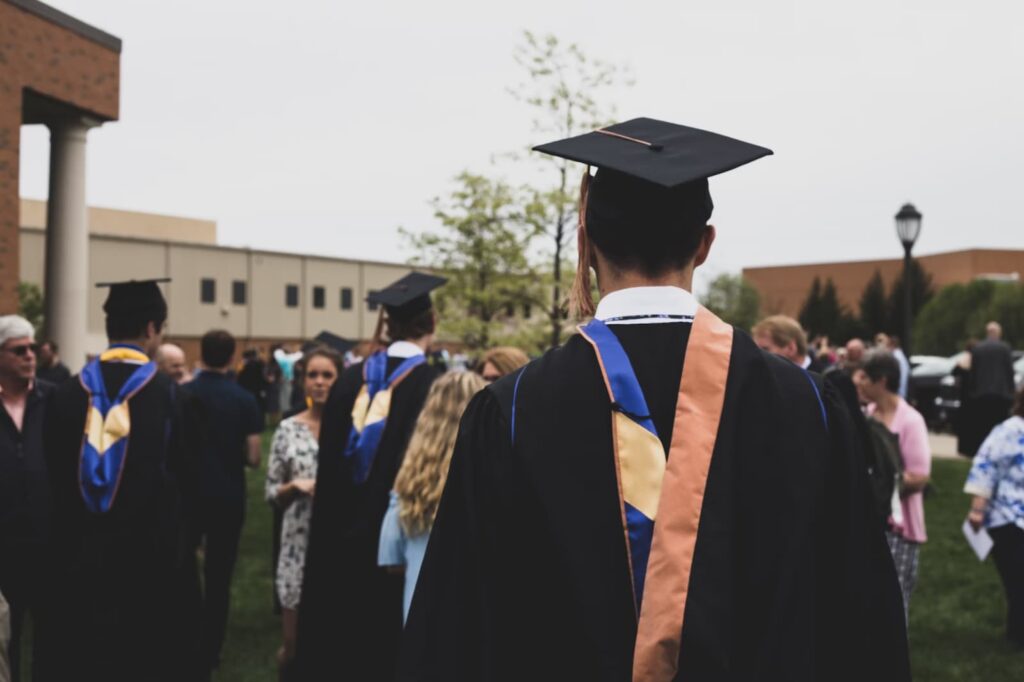When discussing specialized education, a common question arises: “How many deaf colleges are there?” This query not only highlights the interest in educational institutions tailored for deaf and hard-of-hearing students but also underscores the importance of accessible education. This article will examine the number of colleges designed for deaf students, their significance, and the opportunities they provide.
Overview of Deaf Colleges in the U.S.
Deaf colleges are pivotal in providing higher education tailored to the needs of deaf and hard-of-hearing students. These institutions are designed to foster an environment of complete accessibility through American Sign Language (ASL), supportive technologies, and specialized curricula. These colleges also emphasize developing leadership skills, and preparing students to become advocates within the deaf community and beyond. They collaborate with various organizations to offer internships and real-world experience, bridging the gap between academic studies and professional employment.
Additionally, faculty at these institutions are often proficient in ASL, ensuring that communication is effective and inclusive. Such colleges frequently host seminars and workshops that address the latest developments in accessibility and technology in education. Finally, the campuses are equipped with facilities that are specifically designed to meet the needs of deaf and hard-of-hearing students, making education both accessible and empowering.
How Many Deaf Colleges Are There?
In the United States, two prominent institutions are primarily dedicated exclusively to deaf and hard-of-hearing students: Gallaudet University in Washington, D.C., and the National Technical Institute for the Deaf (NTID), part of the Rochester Institute of Technology in New York. Both colleges are renowned for their comprehensive approach to education and empowerment of the deaf community.
These institutions also serve as cultural hubs, where students from diverse backgrounds gather to share experiences and grow. Each college hosts numerous conferences and symposiums annually, focusing on advancements in deaf education and technology. Alumni from these colleges often lead significant initiatives that enhance the quality of life for the deaf community worldwide.
Additionally, both institutions are engaged in continuous research to improve educational methodologies and accessibility tools for the deaf. They maintain strong partnerships with global organizations to promote awareness and inclusivity for individuals who are deaf or hard of hearing.
Gallaudet University
Established in 1864, Gallaudet University is a beacon of academic excellence and cultural empowerment for deaf and hard-of-hearing students. It offers various undergraduate and graduate programs, all conducted in a bilingual environment using English and ASL. Gallaudet University also boasts a rich extracurricular life, including vibrant arts programs and competitive sports teams adapted for deaf athletes.
The campus features state-of-the-art facilities such as the Technology Access Program, which researches and develops communication technologies for the deaf community. Moreover, the university’s global outreach initiatives help to foster international partnerships and bring global perspectives to the campus, enriching the educational experience for all students.
National Technical Institute for the Due to Deaf
Founded in 1965, NTID stands as a unique model of inclusivity, offering over 200 academic programs. It integrates deaf and hard-of-hearing students with hearing students, providing a rich, inclusive educational experience.
NTID also provides extensive support services, including interpreters and note-taking services, to ensure all students have equal access to educational materials.
The institute’s co-op and internship programs offer practical work experience, helping students to seamlessly transition from academic life to professional careers. Additionally, NTID hosts numerous cultural events and festivals celebrating deaf culture, fostering a strong sense of community and belonging among its students.
The Importance of Specialized Colleges
Specialized colleges for the deaf play a crucial role in education and shaping a culture that embraces diversity and inclusivity. They serve as critical centers for the deaf community, offering spaces where students can thrive without barriers to communication.
These colleges also contribute significantly to the academic research on deaf studies and linguistics, advancing our understanding of deaf culture and communication. They provide a supportive network that extends beyond graduation, with robust alumni associations that help graduates find jobs and continue their professional development.
These institutions enhance students’ personal growth and confidence by fostering environments where deaf students can interact freely and build strong social connections.
Additionally, specialized colleges advocate for policy changes and accessibility improvements on a national level, ensuring that the needs of the deaf community are represented.
They also collaborate with mainstream educational institutions to share best practices and promote greater inclusivity across the education system.
Educational Opportunities and Resources
When considering higher education, it’s essential to recognize that learning extends beyond the classroom, especially at specialized institutions like deaf colleges.
These institutions are not just about classroom learning; they provide many resources and opportunities:
- Career Development: Focused support in career services tailored to the deaf and hard of hearing.
- Community Engagement: Vibrant campus life with clubs, organizations, and events celebrating deaf culture.
- Research and Innovation: Opportunities in research fields benefit the deaf community.
Yet, sometimes, all of these are pretty difficult. For those looking to further their education or seeking resources to help with their academic work, you might find the best homework help websites particularly useful, offering tools that cater to a diverse range of needs and preferences. Thus, students can focus on something they really enjoy.
Both Gallaudet and NTID offer a variety of programs designed to cater to the academic and social needs of their students:
- Academic Programs: Students can pursue various fields, from arts to engineering.
- Support Services: Counseling, tutoring, and career services specifically designed for deaf and hard-of-hearing students.
- Technology and Accessibility: State-of-the-art technology to assist in communication and learning.
- Community and Culture: Events and organizations that foster a strong sense of community among students.
These institutions provide a comprehensive educational experience that prepares students for professional success and personal fulfillment.

Conclusion
In conclusion, while there are predominantly two major deaf colleges in the United States, their impact on their students and the broader community is profound. Gallaudet University and the National Technical Institute for the Deaf are more than just educational institutions; they are vital centers for empowerment and innovation within the deaf community.
